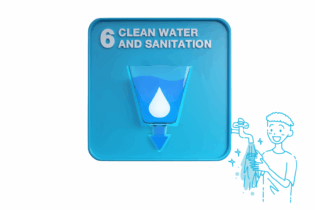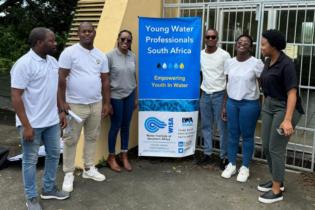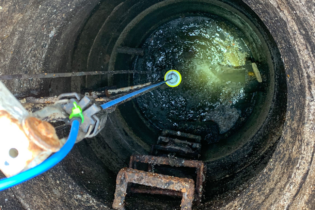A visionary leader in its field, Nyeleti Consulting celebrates its 20th birthday in 2019. IMIESA speaks to executive director Pine Pienaar about the company’s successes and future ambitions.
What sets Nyeleti apart from the competition?
PP Nyeleti is a black-owned consulting engineering firm with expertise in most civil engineering fields, specifically structural, water and transportation engineering. Over the past 20 years, we’ve had the privilege to be involved in a number of flagship projects within South Africa, which have greatly refined our capabilities. These include involvement in the design and construction of stadiums for the 2010 FIFA World Cup, the Gauteng Freeway Improvement Project, Gautrain, balance-of-plant and auxiliary buildings for Eskom’s Medupi and Kusile power stations, and the design of elements of the well-known Msikaba and Mtentu N2 Wild Coast bridges. We are grateful to clients and lead consultants who afforded us these opportunities. We have also had the opportunity to design and supervise numerous projects within the urban and rural infrastructure sphere. These projects include road infrastructure development, the implementation of local public transport systems, and the development of water reticulation and sewerage systems. World-class project execution is at the core of our business – and this all depends on people. Skills development, mentorship, the allocation of project responsibility, company ownership and management, succession planning, staff retention and wellness are all internal priorities. This investment in human resources has made us the success we are today. Our slogan is ‘Engineered to excel’ and our name, Nyeleti, means ‘star’. This symbol reflects our commitment to excellence.What does the future hold for the consulting profession?
The challenges currently being experienced within this sector are well known. Poor GDP growth, an increase in public sector debt, and increased social needs have resulted in a drastic decrease in the funding available for infrastructure development. However, over the longer term, we know that infrastructure provision and operation are essential for the economic well-being of the country and the development of its people. The consulting engineering profession has a huge role to play, so we’re optimistic about the future of the profession.How have past milestone projects shaped the company?
We consider milestone projects to be important for a number of reasons. These projects are generally technically challenging, which hones the abilities of our designers and, in some cases, construction supervisors. Milestone projects also contribute to the company’s well-being, in that engineering staff generally like to be associated with these projects. In this way, these projects contribute towards staff motivation and retention. Perhaps most important is the marketing value of these projects, assisting the company with being more visible within the industry and demonstrating its capabilities.Which projects are you currently working on?
We are pleased and grateful to have a healthy order book in this tough economic climate. An exciting project we were recently appointed for, in joint venture with Bigen African and GIBB, is the design and supervision of the Mokolo Crocodile Water Augmentation Project, Phase 2, also referred to as MCWAP-2. This project will significantly increase the supply of water to the Lephalale region in Limpopo. The project is being implemented in support of one of the strategic integration projects (SIPs) forming part of government’s National Infrastructure Plan, namely SIP 1. SIP 1 aims to unlock the economic potential of the northern mineral belt located in the Waterberg area. Another interesting project in the water field is the Hammanskraal bulk and distribution network in Tshwane, currently in the construction phase. The project includes a bulk supply steel pipeline, 800 mm in diameter and 5.2 km long, serving Hammanskraal Ext 1, Temba and adjacent townships. The project also includes an outfall sewer, consisting of a 3.4 km long, 600 mm diameter concrete pipe. Water and sewer services are being provided to 2 770 stands, as well as toilet top structures. In the roads field, Nyeleti is responsible for the design and construction supervision of various national road projects for Sanral, including portions of the N2 and N3 in KwaZulu-Natal and the N8 ring road in Bloemfontein. The upgrading of the Watt Interchange in Johannesburg for the JDA is a prominent project with interesting challenges, while our order book also includes a number of provincial-level road rehabilitation projects.A first for Nyeleti is the appointment as independent engineer on the Bakwena N1-N4 Toll concession project. Here, we are working in joint venture with a newly established black-female-owned company, Merchelle’s Collective.
Traffic engineering and impact studies also form part of our bread-and-butter work. Although we do not currently have an active public transport project, we have been intimately involved in this field over the years. We treasure this involvement, understanding the importance of public transport in addressing the mobility needs of our population. The work of our Forensic Investigation Unit typically consists of shorter-duration investigations into the condition of concrete infrastructure such as chimneys and silos, and the determination of structural characteristics, such as the level of provision of rebar, slab thickness or concrete properties.






